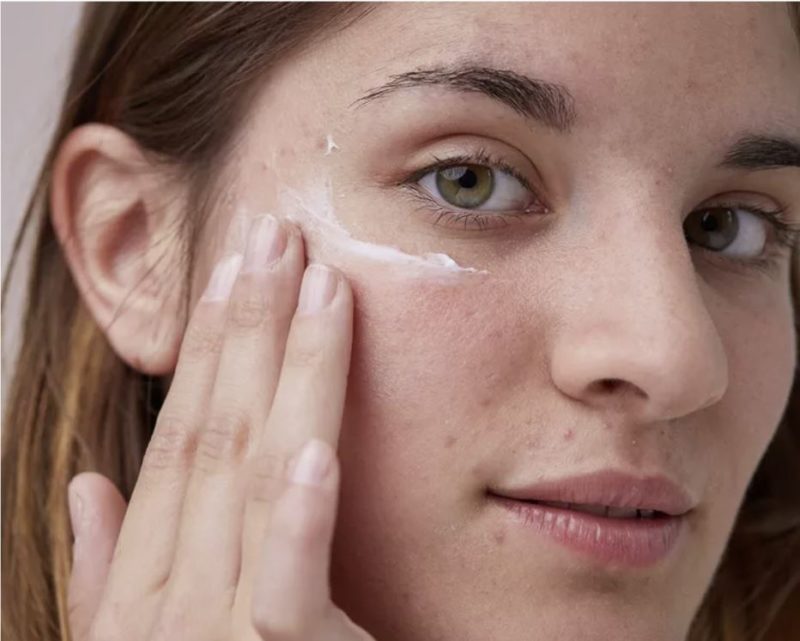As the colder winter months draw in and the sunlight fades away, the sudden temperature drop can affect us in many ways. Not only can we see a dip in our mood but we can get cracked, damaged and dry winter skin.
Why does my skin get dry during winter?
Naturally your skin will draw out moisture from your surroundings in order to keep hydrated. During the winter the humidity drops making the air drier and crisp. A lot of people also use harsher soaps that can damage the protective barrier of the skin (the epidermis). Damage to the epidermis strips your skin of natural oils and moisture.
The addition of winter favourites like indoor heating, hot baths and showers can also be an enemy to moist, plump skin. While we’re not suggesting you avoid warmth, there are some essential steps to take to make sure you’re looking and feeling your best.

Will the cold weather affect all skin types?
While the winter season can affect all of us, it can have a particular effect on those with sensitive skin, or skin conditions such as eczema or rosacea. In worst cases, dry skin can crack & bleed creating areas which can become further irritated by harsh soaps and even items of clothing, therefore making you more vulnerable to infection.
What about Maskne?
Just as we thought our skin was free of chafing and oil-trapping face masks, the Omicron variant appears!
Wearing a face mask over your nose and mouth for a prolonged period of time can cause skin to break out more than normal.
The acne caused by masks is different to regular acne, as that is caused by hormonal changes. ‘Maskne’ is a direct result of physical disruption of the skin; the consistent rubbing of material against your skin can result in micro-tears, which can then lead to bacteria, dirt and oil easily entering underneath the surface and clogging up your pores. Face masks have been designed and utilised in order to limit the airflow from entering/exiting, which means the skin cells that you would usually be shedding throughout the day are trapped on the surface and have nowhere to go.
However, it’s important to remember that face coverings play a vital role in the fight against COVID-19. But the humid and sticky environment a mask creates around your face, chin and nose can cause breakouts for two main reasons:
Physical rubbing
If you’re wearing a mask for long periods of time, the excess heat and pressure of the material build-up against your face can cause a breakdown in the protective layer of your skin. This layer helps keep out external aggressors and works to keep your skin hydrated. Without this layer, your skin may be prone to pimples.
Trapped moisture
The combination of sweat and oil that gathers under the mask (not to mention trapped breath) can clog pores. The lack of air circulation encourages bacteria growth and can lead to blackheads, whiteheads or pimples that will vary in size depending on how infected they become.
Coupled with the cold weather, it’s important to keep our skin as healthy & happy as we possibly can. Here are 10 ways in which you can tackle dry winter skin.
10 ways to help your dry skin this winter:
Adopt a skin care routine that you can keep on top of. You want to keep things as simple as possible so that you’re able to stick to your skincare routine – find out what your skin type is & do some research around the best products that match your skin type.
Protect your skin – wear gloves/scarf to protect your skin from the extremities of the weather.
Apply SPF – most of us are used to wearing SPF/sun cream while sitting on the beach, however the winter sun can still very much damage your skin. Use an SPF all year round to project your skin from the sun’s rays!
Skip the long baths – hot showers/baths are great for warming up your body after being out in the cold, but a long hot bath can actually strip your skin of moisture. try using a moisturising shower gel, or soaps that contain moisturisers. Harsh, drying soaps tend to strip the skin and wash away the body’s oils. Choose mild soaps that are non-alkaline and have added oils and fats (super fatted soaps). Super-fatted soaps are recommended because they have extra amounts of fatty acids (e.g. cocoa butter, coconut oil or lanolin). If you are having a bath/shower, make sure you moisturise within a few minutes of leaving your bath/shower as this will help to trap the moisture on your body.
Use a hydrating cleanser – cleansers can actually dry out your skin, make sure you choose a cleanser that is hydrating for your skin.
Hydrate – Your skin can often be a good indicator of what is going on inside your body so make sure you stay hydrated throughout the day by drinking water, our skin is made up of 64% water, hydrate from the inside out.
Moisturise – moisturising is essential for your skin, but it’s important you use the right one for your skin type (again, do some research to find the best for your skin type).
- Add serums to your skincare – for example, serums such as Vitamin C can help brighten your skin, and Vitamin D can also aid dry skin.
Add Hyaluronic Acid – Hyaluronic acid (HA) is a sugar found naturally in our skin that holds water and helps to keep the skin hydrated and plump. The HA within our bodies holds a thousand times its weight in water to not only retain all that moisture in our skin and joints, but also prevent all that moisture from evaporating. As we get older, the amount of HA in our body decreases over time. So adding HA to your skincare routine helps keep your skin hydrated, again look to apply this once out the bath/shower to help lock in any moisture.
Aquapure – Aquapure treatments is suitable for all skin types and can help to combat a multitude of skin concerns. Aquapure promotes healthy skin and peels away impurities & dead skin all year round.
Hydrating and moisturising during the winter months will enable you to combat unwanted dry/cracked skin and by adopting a simple skincare routine, you can feel happy and confident going into the festive season and beyond!




